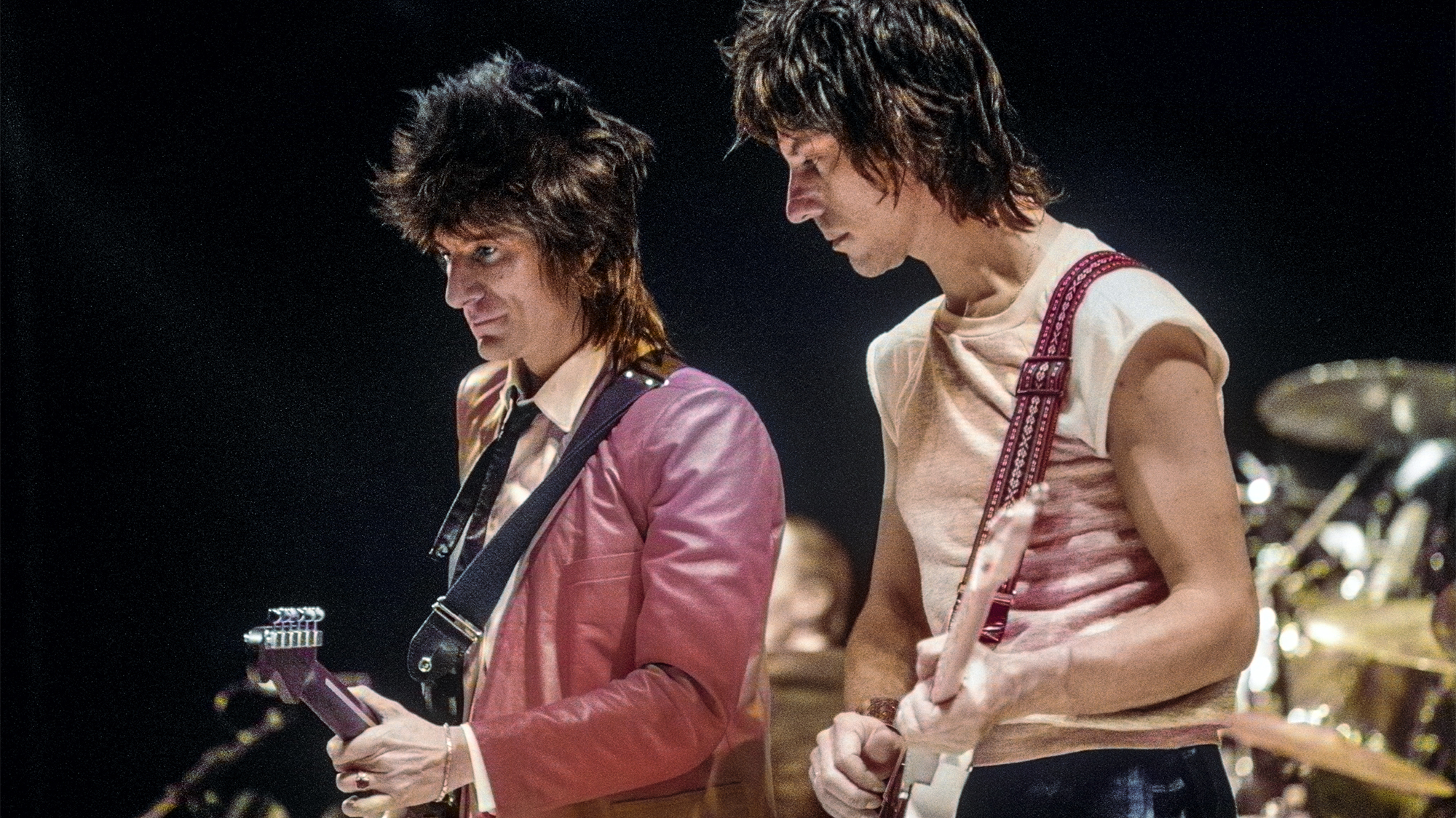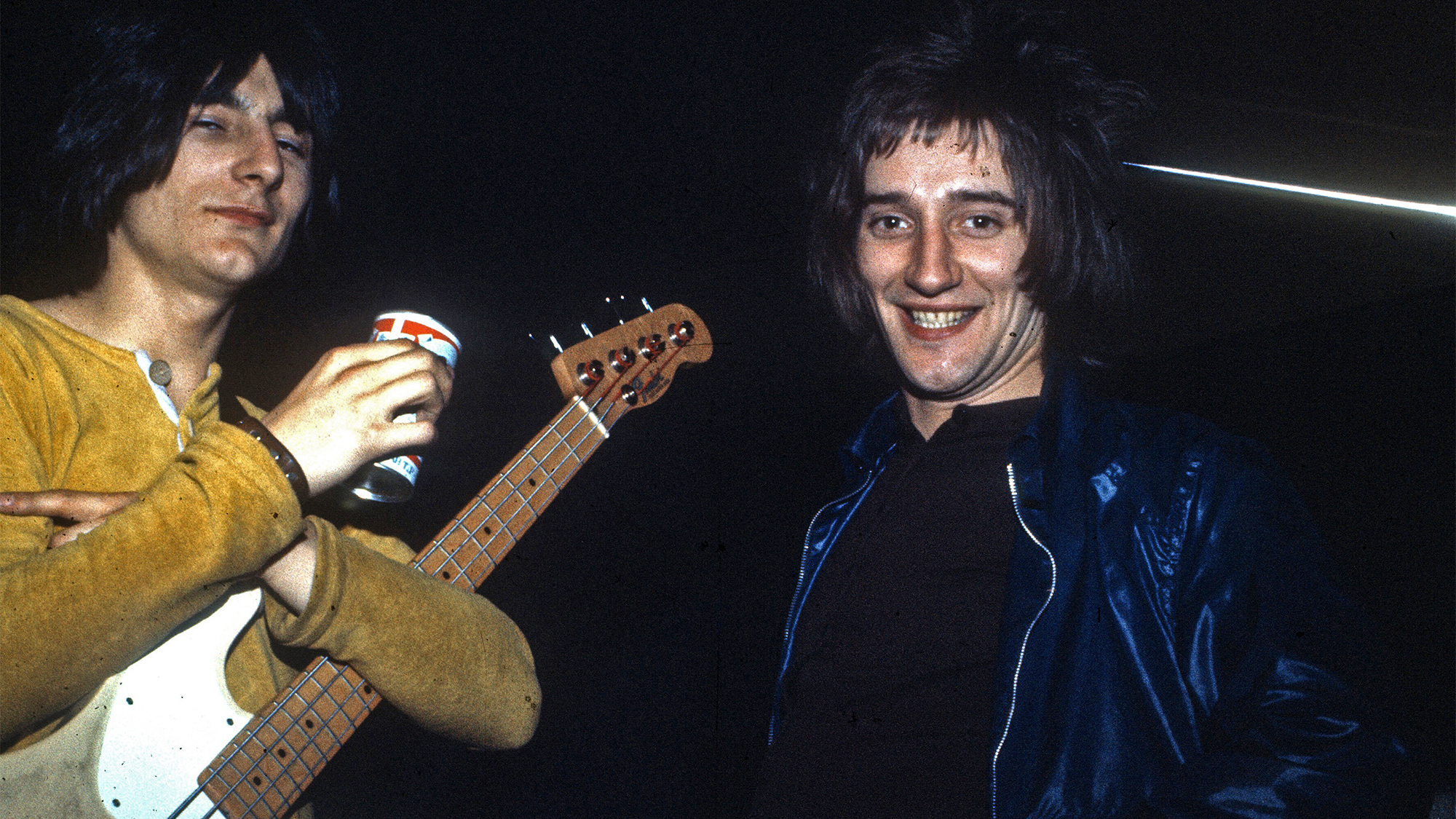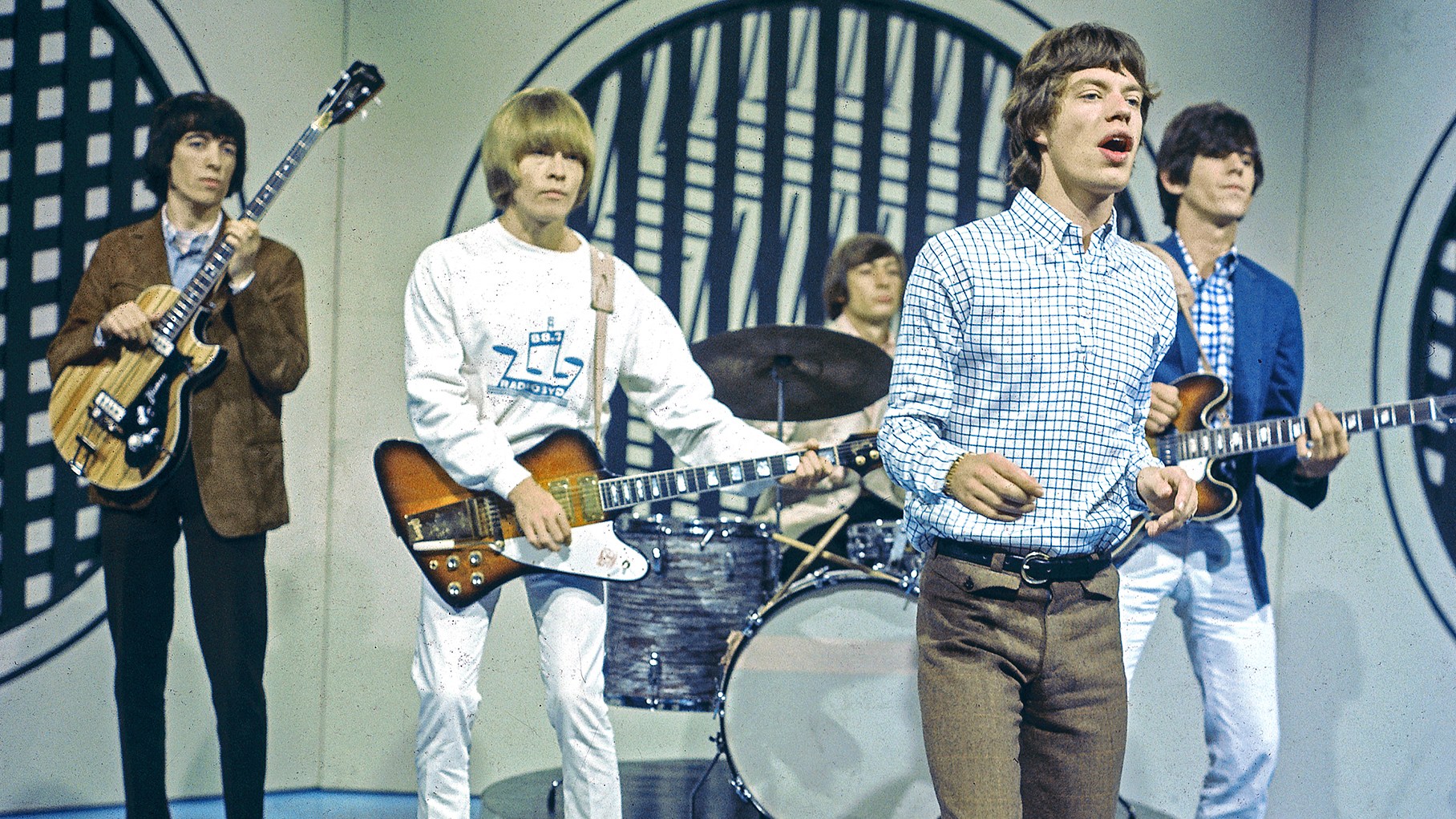“He said, 'It sounded really great with with two guitar players.’ And Jeff said, ‘Ronnie, if you don't mind...’” Ronnie Wood on the remark that got him demoted to playing bass in the Jeff Beck Group
Forced to switch instruments, Wood embraced the challenge and won praise from none other than Hendrix himself

All the latest guitar news, interviews, lessons, reviews, deals and more, direct to your inbox!
You are now subscribed
Your newsletter sign-up was successful
After leaving the Yardbirds, Jeff Beck turned to Ronnie Wood to help get the Jeff Beck Group off the ground. Although the future Rolling Stone initially formed part of the act's two-guitar lineup, he had swapped his electric guitar for bass by the time the band recorded their 1968 debut, Truth.
For anyone who knows Wood as a guitarist with one of the world's biggest bands — and the former guitarist of the Faces — seeing him on bass can be a little confusing.
However, in a new video on his YouTube channel, Wood reveals that he was excited by the “challenge” of the instrument change — and names the member of the group Deep Purple who inspired his move from six strings to four.
“I used to see the Yardbirds a lot at the Crawdaddy Club,” he recalls. “People were swinging from the rafters in there, sweat dripping from the ceiling; the atmosphere was incredible with the crescendos they used to do. They used to do a fast version of a Muddy Waters song called 'Mannish Boy'. Everybody would go crazy.

“So I said to Jeff, ‘If you ever think about leaving the Yardbirds, we should get together.’ And sure enough, he did leave, and he did ring me up and say, ‘Let's get together.’”
The first line-up saw Wood on rhythm guitar, with Dave Ambrose on bass, and various different drummers.” But it was a man who would later make his name in Deep Purple that seemingly — and inadvertently — put an end to the Beck-Wood guitar duo.
“One day after playing the 100 Club [in London], John Lord, who was living with me at the time — he was a in my brother's band the Artwoods — said, ‘It sounded really great with with two guitar players.’
All the latest guitar news, interviews, lessons, reviews, deals and more, direct to your inbox!
“And Jeff said, ‘Ronnie, if you don't mind, would you consider playing bass?
For many, such a might have been a blow to the ego, especially given that Wood was far from a second-rate guitarist (even if Harvey Mandel somewhat bitterly maintains he should have landed the Stones gig instead). Wood, however, took it in stride.
“I said, ‘I love a challenge, I don't mind.’ When we went to America, we used to jam with Jimi Hendrix, and he’d say, ‘Hey Jeff, let the bass player have a solo!’ He loved my bass playing, so that was a feather in my cap.”
When Hendrix moved to the U.K., he’d briefly share a flat with Wood in Holland Park, London as theuir friendship blossomed. Wood, however, would return to his beloved six-string after two albums, forming the Faces with Rod Stewart in the early ‘70s. The band is now expected to release their first album since 1973 next year, after Kenney Jones, having written 11 new songs with Stewart and Wood.
It was his exploits in the Faces that helped Wood get the Stones gig, forming a near-telepathic partnership with Keith Richards.
“When Ronnie became available and suddenly walked in, that was it. There was no doubt,” Richards tells Guitar Player. “We pick it up and cover each other so that sometimes you can't really tell who's playing.”
A freelance writer with a penchant for music that gets weird, Phil is a regular contributor to Prog, Guitar World, and Total Guitar magazines and is especially keen on shining a light on unknown artists. Outside of the journalism realm, you can find him writing angular riffs in progressive metal band, Prognosis, in which he slings an 8-string Strandberg Boden Original, churning that low string through a variety of tunings. He's also a published author and is currently penning his debut novel which chucks fantasy, mythology and humanity into a great big melting pot.


